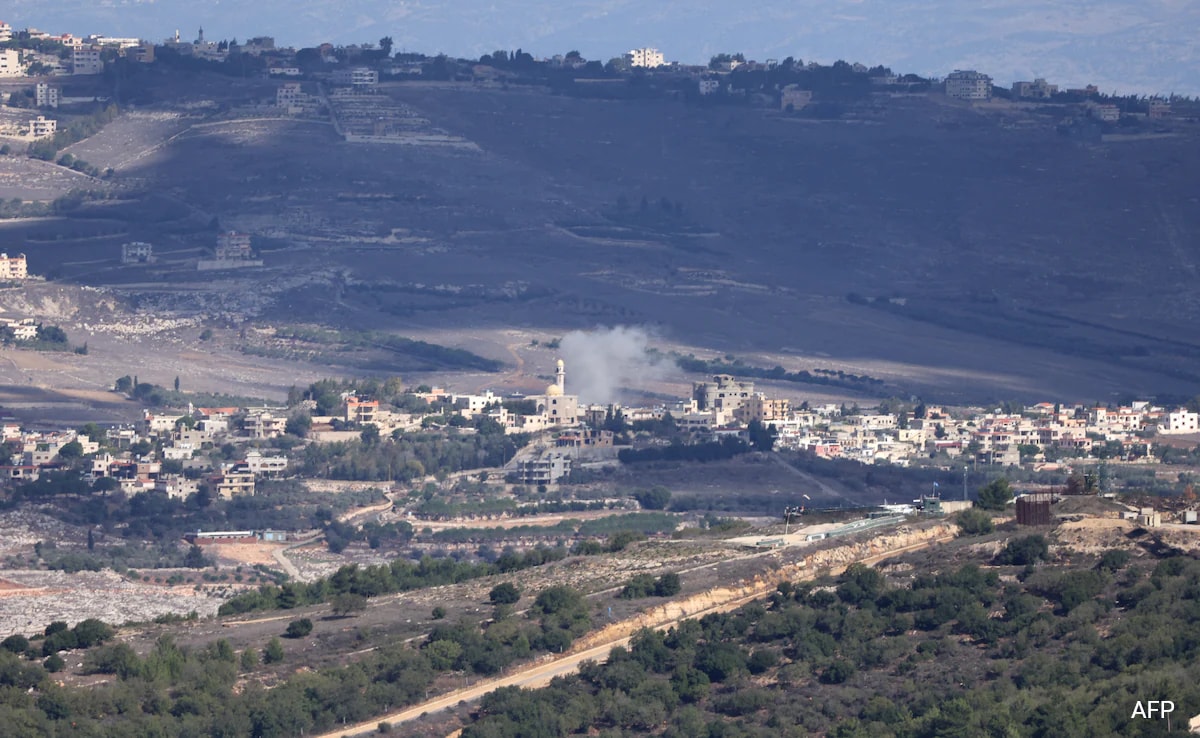Hezbollah has claimed repeated attacks on Israeli troops and position. (File)
The deputy leader of Lebanon's Hezbollah said Sunday that Israel was "not in a position" to impose its preferences over the group's presence in the border area while its war in Gaza rages.
The Israel-Lebanon border has been rocked by escalating exchanges of fire, mainly between the Israeli army and Iran-backed Hezbollah, since the Israel-Hamas war broke out on October 7, raising fears of a broader conflict.
The army has evacuated thousands of civilians from the border area, and Israel has been pushing for Hezbollah to withdraw north of the Litani River, about 30 kilometres (20 miles) north of the frontier.
Hezbollah number two Naim Qassem said Israel was putting forward proposals and "trying to show that it has options" to help return displaced Israeli residents and push Hezbollah from the border area.
"Israel is not in a position to impose its options," Qassem said in a speech, warning that Israel "first must stop the Gaza war in order for the war in Lebanon to stop".
"The persistent bombing of civilians in Lebanon means the response will be stronger and proportionate to the Israeli aggression," Qassem added.
Since the cross-border hostilities began, more than 160 people have been killed on the Lebanese side, most of them Hezbollah combatants but including more than 20 civilians, three of them journalists, according to an AFP tally.
On the Israeli side, at least five civilians and nine soldiers have been killed, according to the military.
Hezbollah has claimed repeated attacks on Israeli troops and positions, including on Sunday, saying its actions are in support of its ally Hamas, while Israel has been striking south Lebanon.
The Israeli army said on Sunday that "fighter jets struck Hezbollah terrorist infrastructure and military structures" in the Ramyeh area of south Lebanon.
It accused the group of "operating from behind the civilian population" in Ramyeh and using it as "a centre for its terrorist activity".
Hezbollah has not had a visible military presence on Lebanon's southern border since the end of a 2006 war with Israel, but has maintained large influence in the country's south, where it has built hideouts and tunnels.
UN Security Council Resolution 1701, which ended the 2006 conflict, called for all armed personnel to pull back north of the Litani River, except for United Nations peacekeepers and Lebanese state security forces.
The Israeli army statement said that Hezbollah attacks "violate UN Security Council Resolution 1701".
This month, Prime Minister Najib Mikati said Lebanon was ready to implement international resolutions if Israel also complied and withdrew from territory.
(Except for the headline, this story has not been edited by NDTV staff and is published from a syndicated feed.)






Leave a Reply